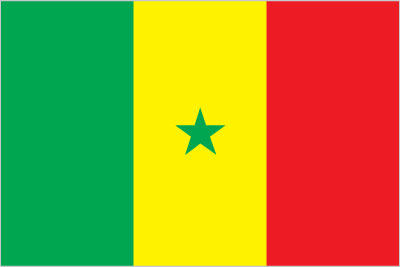
Source: World Bank
Business Cards
. Have one side of your business card translated into French.
. Make certain your title is prominently displayed.
. Cards should be presented and received with two hands or the right hand.
. Gold embossed cards are always well received.
. There is generally no formal ritual when exchanging cards.
. Never write on your or someone else’s business card.
. Make a point of studying any business card you receive before putting it away.
Communication Styles
As indirect communicators, the Senegalese use a lot of proverbs, sayings, analogies and metaphors when speaking, especially if what they have to say is delicate in nature. It is believed that such a style is more polite and demonstrates greater courtesy than being “straight up”. Passive silence is also employed on occasions in order to avoid conflict. If people go quiet for no apparent reason, raising a non-controversial subject will allow communication to continue.
Communication should remain positive at all times. Conversations generally only begin after extensive inquiries into the health and well-being of the other person and their family members. Even if everything is not going smoothly in your personal life, respond to such polite questions in a positive manner. It is important not to rush the greeting process since your goal is to be considered a friend so that business is a possibility.
Eye contact is not pervasive, in fact making direct eye contact throughout a greeting and conversation may brand you as arrogant. The Senegalese tend to lower their gaze while conversing, especially when speaking with someone senior to themselves in age or position.
When communicating information, the Senegalese tend to start with the overall idea and gradually get into the details, using what may appear to be a circuitous route. Since they think in terms of context, they search for the rationale behind behaviour. They examine behaviour in its total context, not merely what they have observed.
Business Meetings
Business meetings are generally formal, especially at the outset as the relationship building process has yet to commence. As the Senegalese grow to trust and respect you, they will naturally become less formal. It is a good idea to follow their lead and maintain a polite and reserved demeanour at all times.
Agendas should be broad and flexible. If used, they are viewed as a broad outline of what is to be discussed. Business conversations generally weave their way through all the topics eventually.
The Senegalese are non-confrontational. They will avoid discussing unpleasant topics for as long as possible. They may agree to deadlines and timetables that they know are unrealistic in order to close the deal. Be cautious when something sounds too good to be true – it probably is.
Most business and government offices are open 8.30am to noon and 2.30pm to 5pm Monday to Friday. Banks usually close around four in the afternoon, and only a few open Saturday mornings. Most restaurants offer lunch from noon to 2.30pm and dinner from 7pm